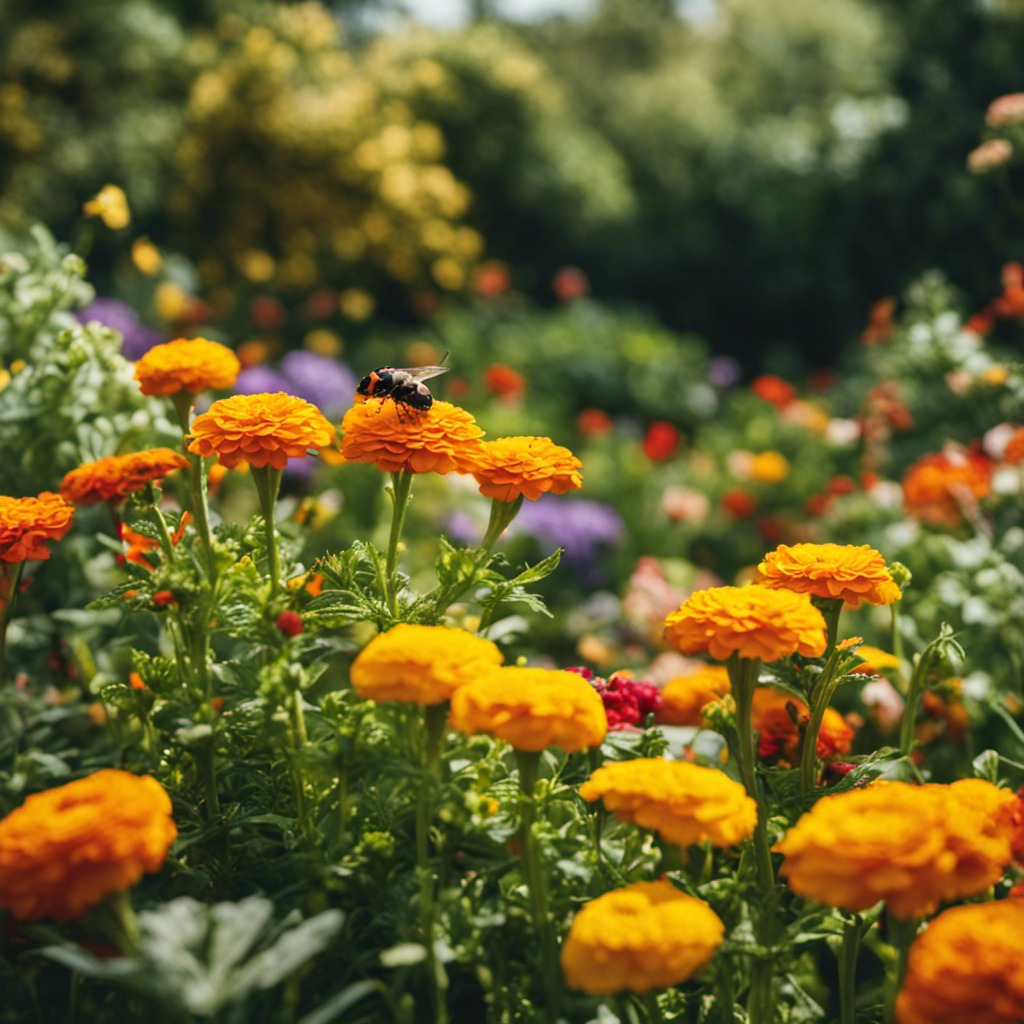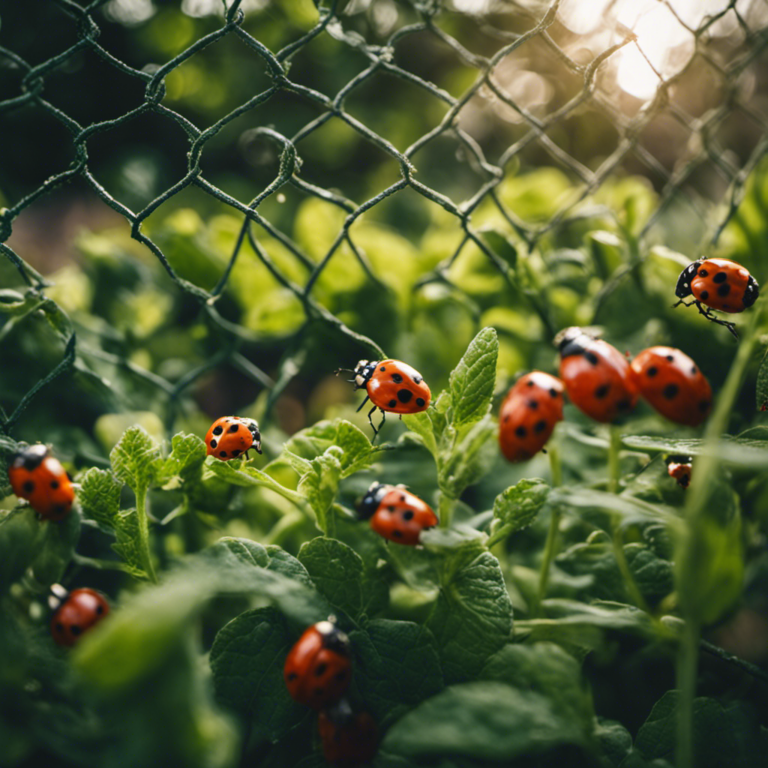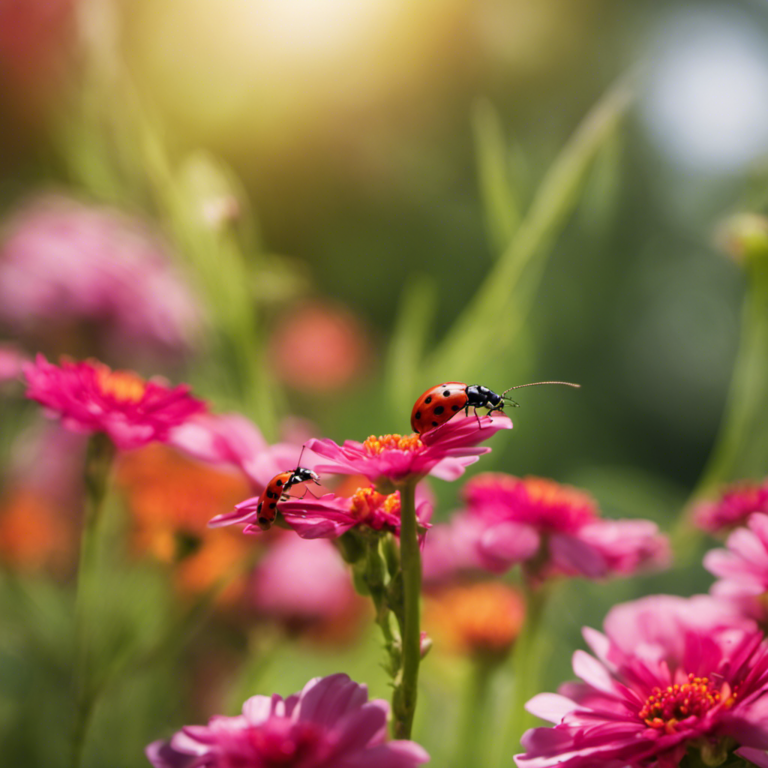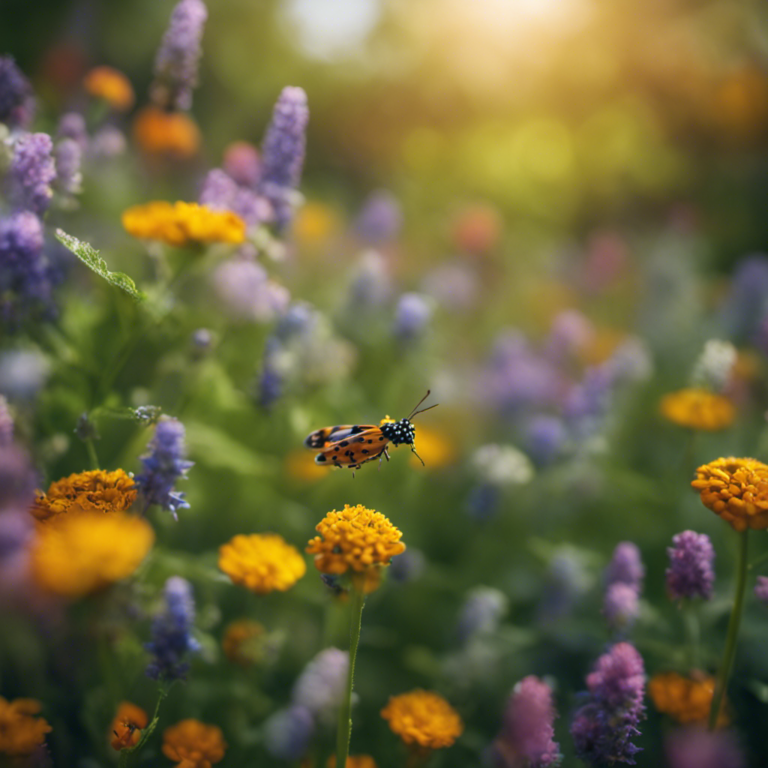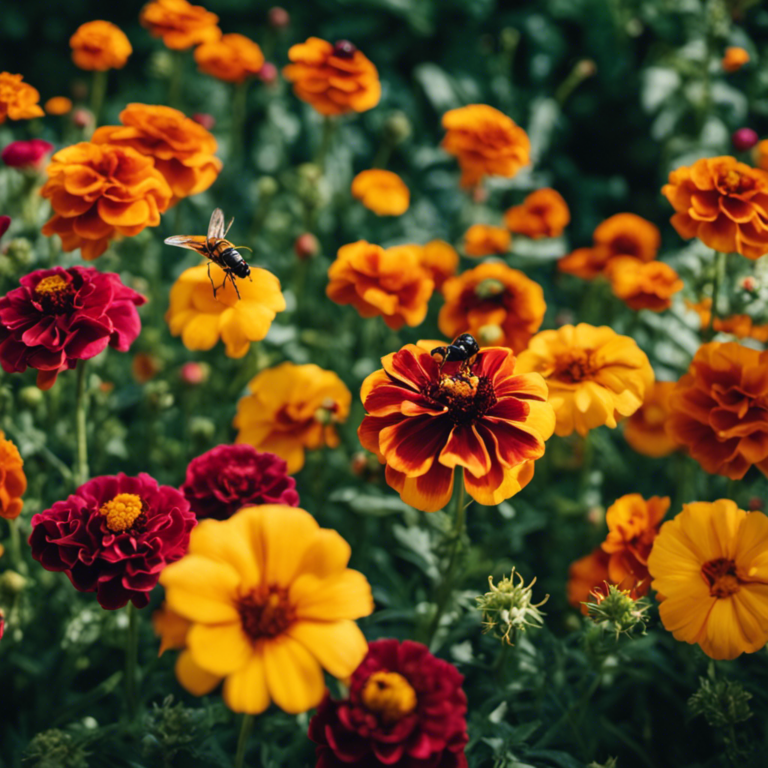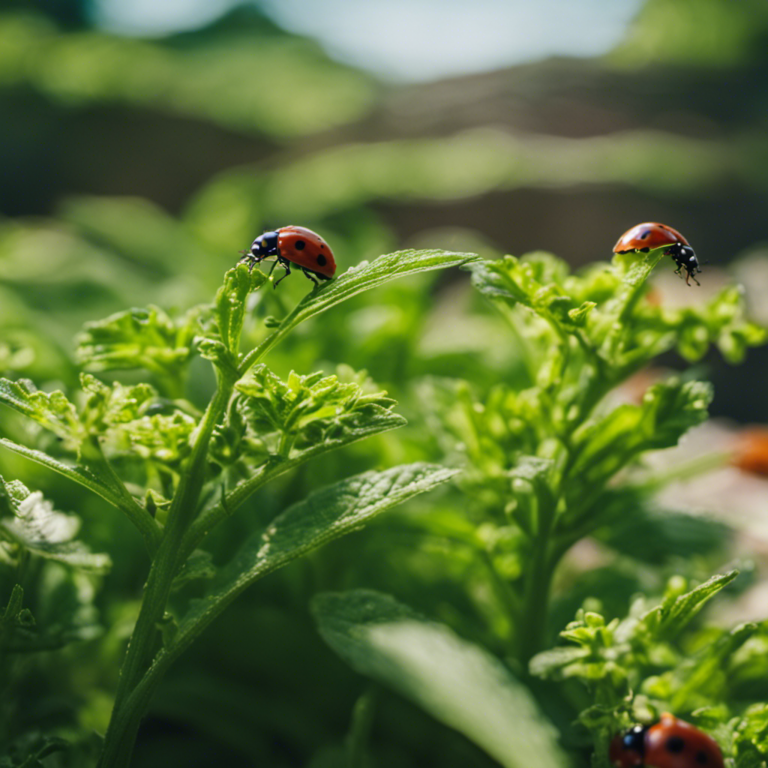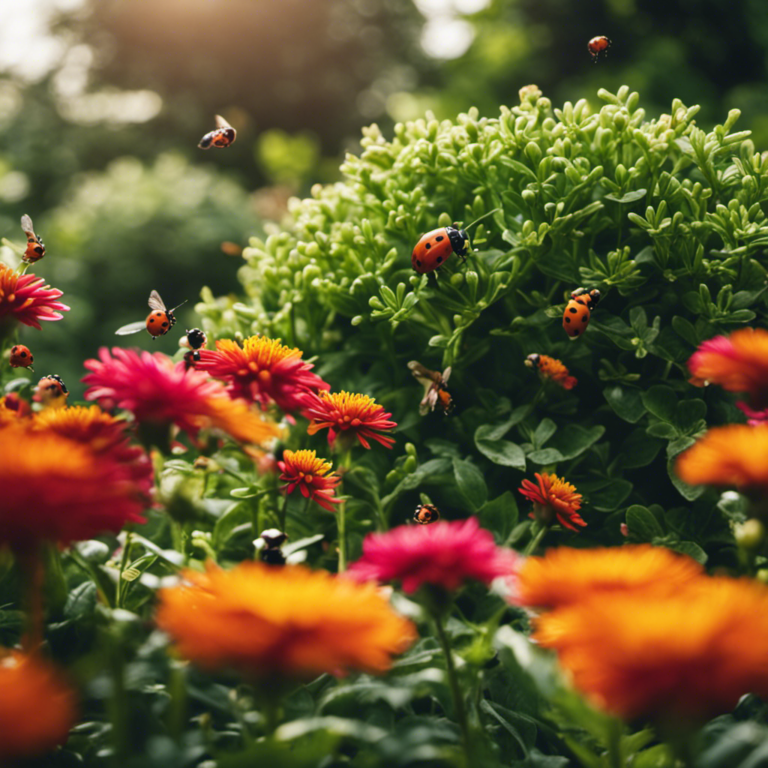Is your garden under attack from pesky pests? Don’t worry, we have the solution you’ve been looking for! In this article, we will share nine natural tips that can help you create a pest-free garden.
From companion planting to using organic sprays, we have effective strategies that will make a difference. By implementing these tips, you can enjoy a thriving garden without the hassle of dealing with pests.
It’s time to take control of your garden like a pro and say goodbye to those pesky invaders!
Key Takeaways
Implement these nine natural tips to create pest-free gardens that thrive, providing a harmonious and healthy environment for your plants.
One effective strategy is companion planting. By strategically placing plants that naturally repel pests alongside your garden plants, you not only deter pests but also attract beneficial insects that act as natural predators.
Another safe alternative to chemical sprays is using organic sprays. These sprays, made from natural ingredients, effectively control pests without harming the environment or your plants.
Enriching your soil with amendments like compost or organic matter is important. Healthy soil promotes overall garden well-being and helps plants resist pest infestations.
In addition to these tips, practicing cultural practices that promote garden well-being is crucial. Proper watering, regular pruning, and weed removal create an unfavorable environment for pests to thrive.
By implementing these strategies, your garden will flourish while pests struggle to survive. Create a thriving oasis for your plants and bid farewell to pesky pests.
Companion Planting
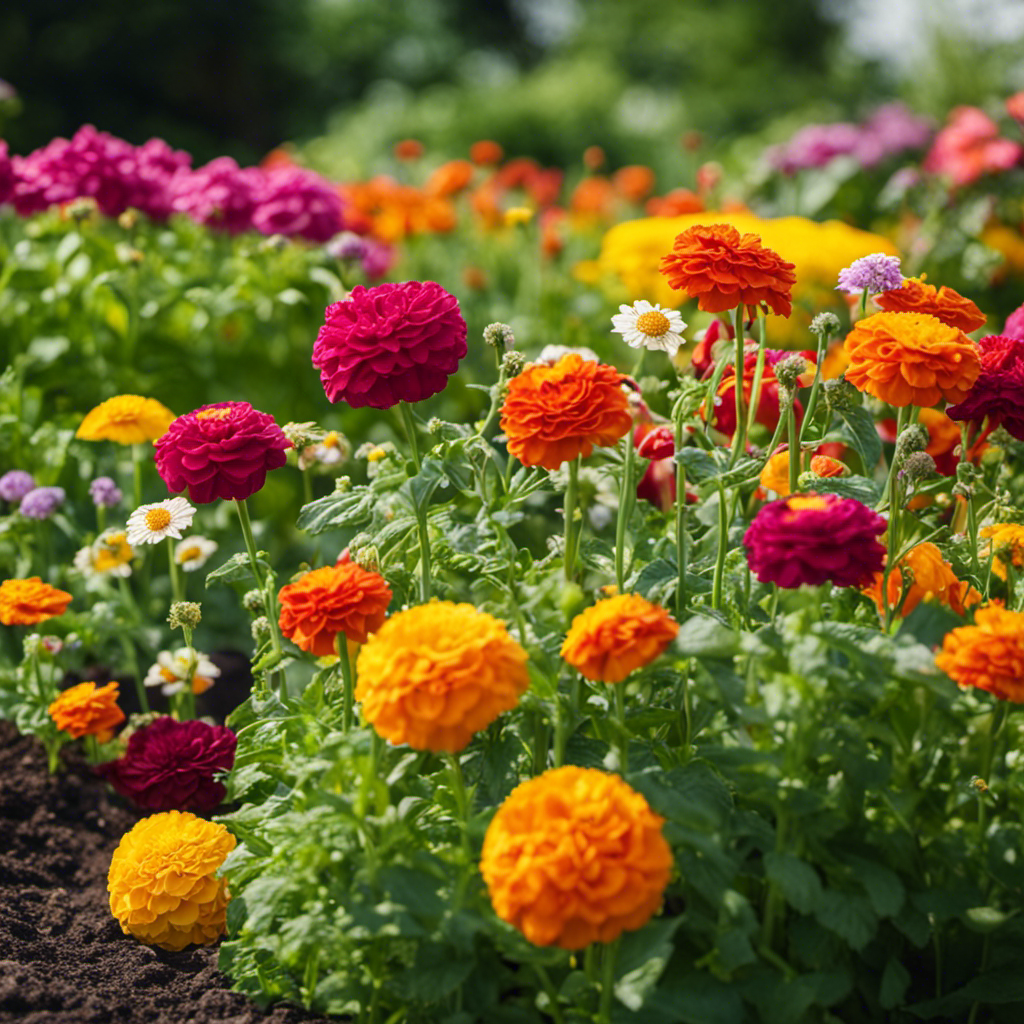
To effectively use companion planting in your garden, start by considering the best time to plant certain crops together.
One important aspect of companion planting is crop rotation. By rotating your crops each year, you can disrupt pest life cycles and prevent the buildup of diseases in the soil.
It’s also important to choose plant varieties that are resistant to pests. These varieties naturally have more resilience against common garden pests, reducing the need for chemical interventions.
Additionally, consider planting crops that have complementary characteristics. For example, planting marigolds alongside tomatoes can help repel pests, while planting beans near corn can naturally fix nitrogen in the soil.
Natural Predators
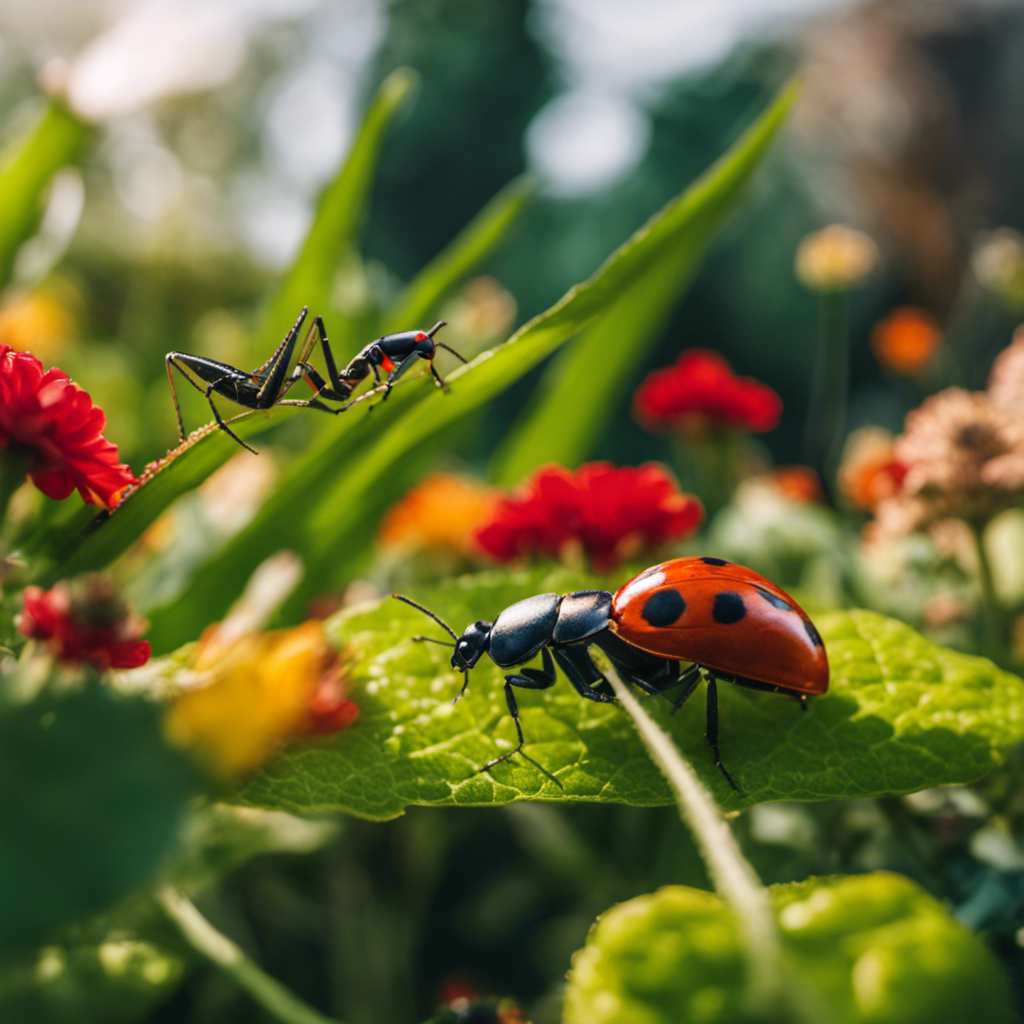
Protecting your garden from pests can be achieved by attracting and cultivating natural predators. Beneficial insects like ladybugs, lacewings, and praying mantises are excellent natural predators that can help control pests in your garden. These insects feed on common garden pests such as aphids, caterpillars, and mites, effectively reducing their population and preventing damage to your plants.
To attract beneficial insects, you can plant flowers that provide nectar and pollen, such as marigolds, daisies, and cosmos. Additionally, creating habitat for these predators, like small brush piles or insect hotels, can encourage them to stay in your garden.
Organic Sprays
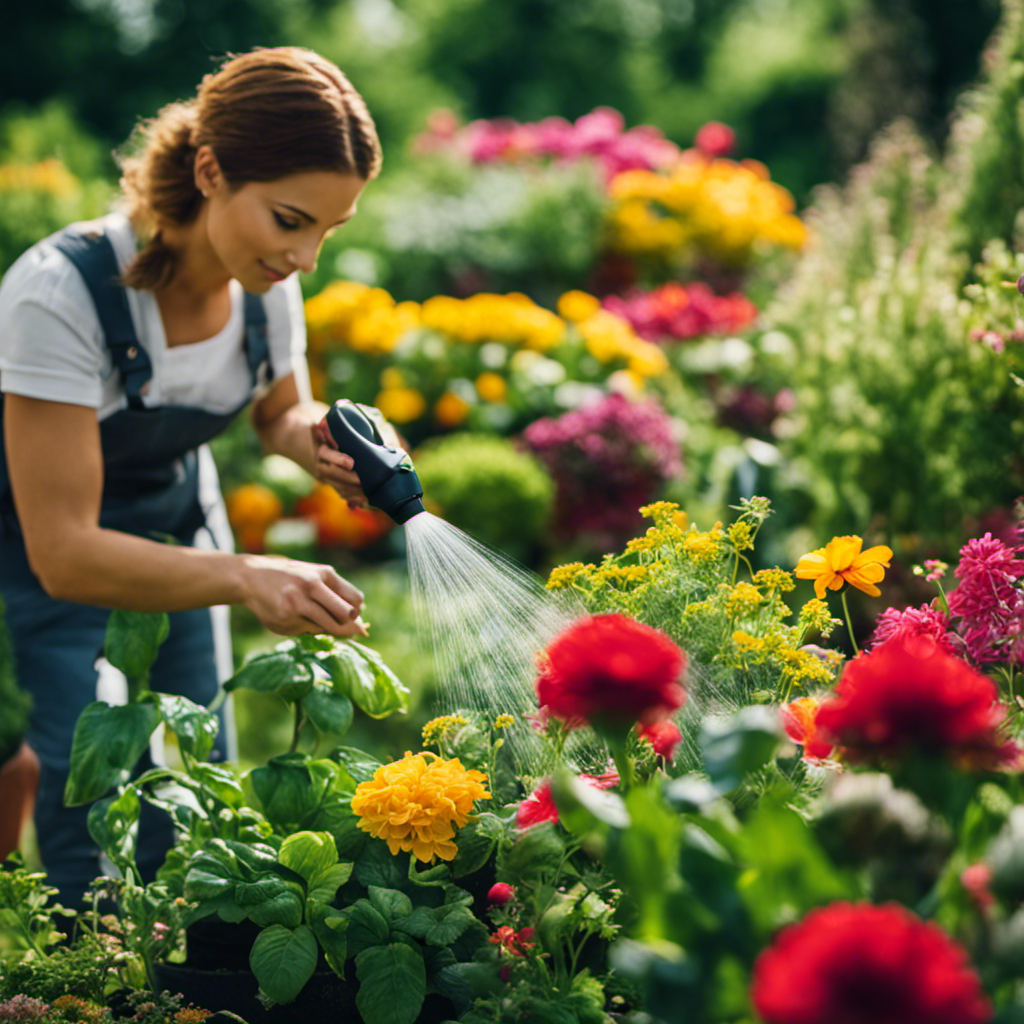
Controlling pests in your garden can be effectively done using organic sprays. These environmentally-friendly alternatives aren’t only safe for your plants but also for the ecosystem. Here are two lists to help you choose the best organic sprays for your garden:
-
Homemade Remedies:
- Neem Oil: This natural insecticide repels a wide range of pests, including aphids, mites, and whiteflies.
- Garlic Spray: Easily make a spray by blending garlic cloves with water. It acts as a deterrent for pests like aphids, snails, and slugs.
-
Eco-friendly Alternatives:
- Insecticidal Soap: Made from natural ingredients like potassium salts of fatty acids, this spray effectively controls soft-bodied insects such as spider mites and aphids.
- Pyrethrum: Derived from chrysanthemum flowers, this organic spray is highly effective against various insects like caterpillars, beetles, and mosquitoes.
Soil Amendments
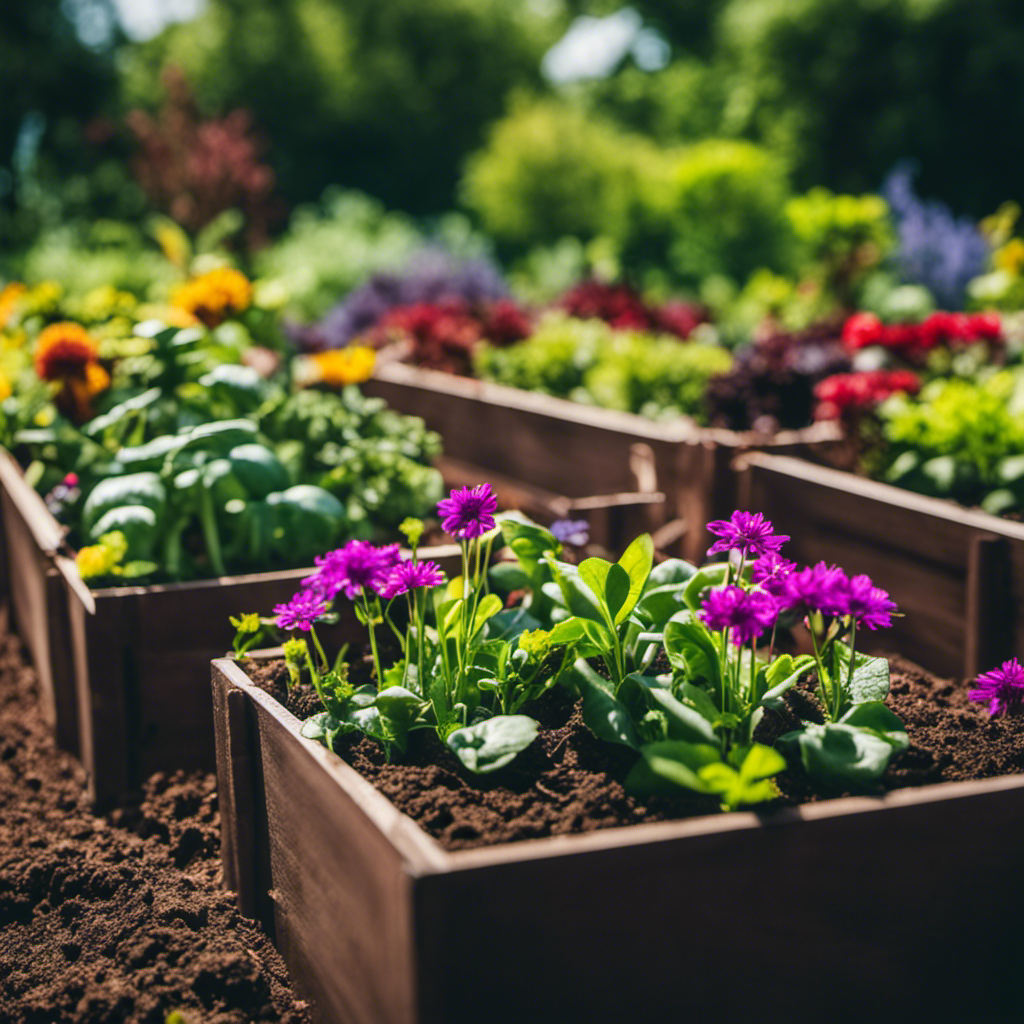
Improve your garden’s soil using natural amendments to create a healthy environment free from pests. Soil amendments play a crucial role in enriching nutrients and adjusting soil pH, which are essential for optimal plant growth. By incorporating these amendments into your gardening routine, you can promote the health of your plants and increase their resistance to pests and diseases.
To understand the importance of soil amendments, let’s take a look at some common natural amendments and their benefits:
-
Compost: Compost adds organic matter, improves soil structure, and releases nutrients slowly. It also helps to slightly acidify or neutralize the soil.
-
Bone Meal: Bone meal is rich in phosphorus, which is essential for root development. It also contributes to slightly acidic soil conditions.
-
Epsom Salt: Epsom salt is a great source of magnesium, which enhances nutrient uptake in plants. It’s suitable for neutral to slightly acidic soil.
-
Wood Ash: Wood ash contains potassium and trace elements that improve soil fertility. It creates alkaline conditions in the soil.
-
Peat Moss: Peat moss retains moisture and improves soil aeration. It’s beneficial for acidic soil.
By selecting the appropriate amendments based on your soil’s needs, you can create a balanced and nurturing environment for your plants to thrive. Remember to follow the instructions and recommendations for each amendment and regularly monitor your soil’s pH levels.
With proper soil amendments, you’ll be well on your way to a pest-free and flourishing garden.
Cultural Practices
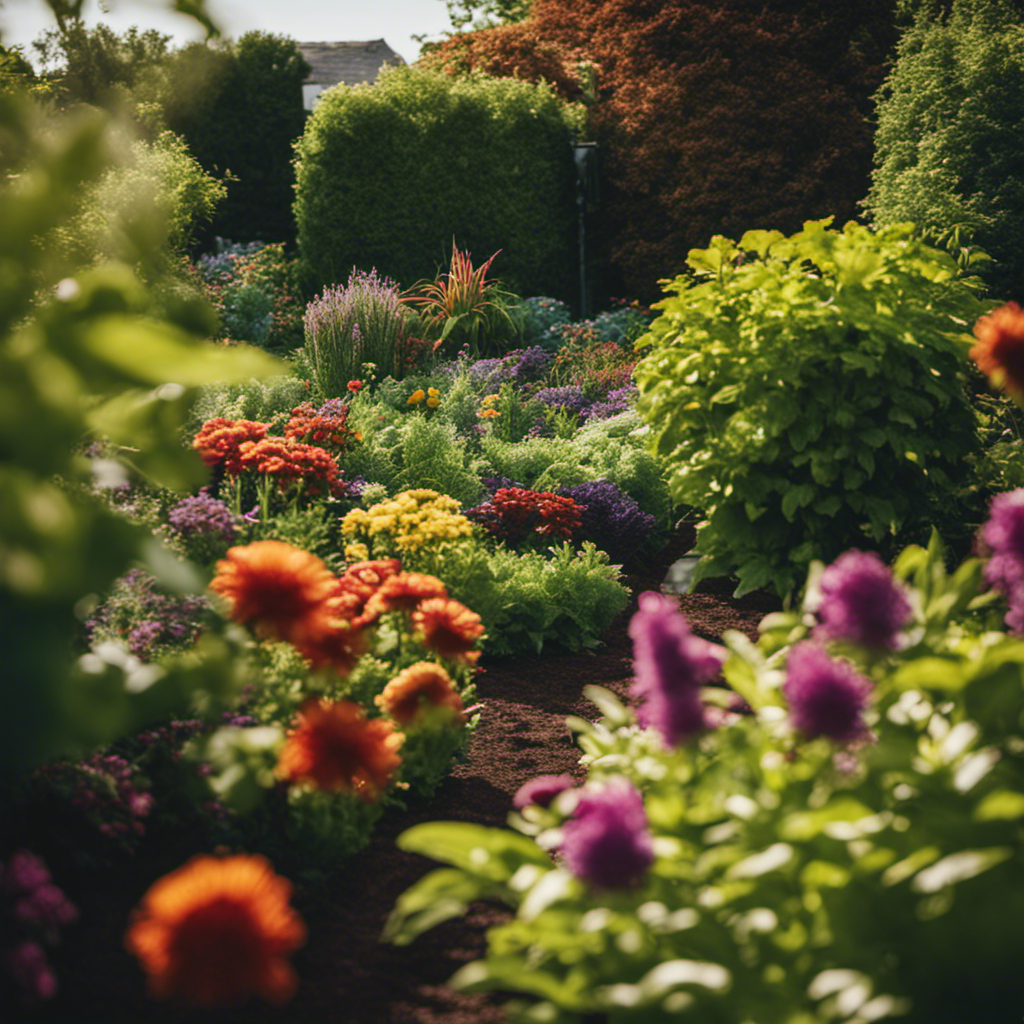
To maintain a pest-free garden, incorporate these important cultural practices into your regular routine:
-
Crop Rotation:
Rotate your crops each season to prevent pests and diseases from building up. Different plants attract different pests, so by moving your crops around, you disrupt their life cycle and reduce the risk of infestation. Group plants according to their families and avoid planting the same family in the same spot for consecutive years. This breaks the pest and disease cycle and promotes healthier plants. -
Mulching Techniques:
Apply organic mulch around your plants to deter pests and conserve moisture. Mulch acts as a physical barrier that prevents pests from reaching the soil surface, making it more difficult for them to access your plants. Choose mulch materials that pests dislike, such as cedar chips or pine needles. These natural repellents can help keep pests away from your garden.
Conclusion
By implementing these nine natural tips for creating pest-free thriving gardens, you can establish a harmonious and healthy environment for your plants.
One effective strategy is companion planting, which involves strategically placing plants that naturally repel pests alongside your garden plants. This not only deters pests but also attracts beneficial insects that act as natural predators.
Another safe alternative to chemical sprays is using organic sprays. These sprays are made from natural ingredients and are effective in controlling pests without harming the environment or your plants.
It’s important to enrich your soil with amendments like compost or organic matter, as healthy soil promotes the overall well-being of your garden and helps plants resist pest infestations.
In addition to these tips, practicing cultural practices that promote the well-being of your garden is crucial. This includes proper watering, regular pruning, and removing weeds, as these practices create an unfavorable environment for pests to thrive.
By implementing these strategies, your garden will flourish and pests will find it difficult to survive. So, create a thriving oasis for your plants and say goodbye to pesky pests.
